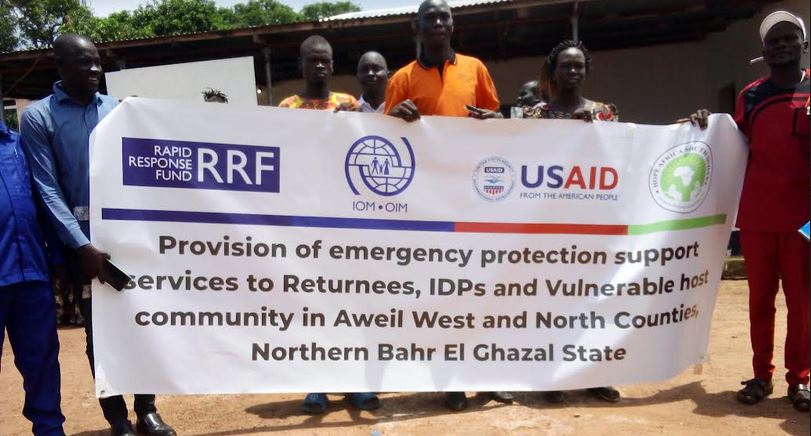A project to support over 13,000 South Sudanese returnees and internally displaced persons (IDPs) was launched in Aweil town in South Sudan’s Northern Bahr el Ghazal State on Friday.
Economic empowerment and protection services for women and girls are among the top deliverables of the project.
Provision of emergency protection services and economic empowerment will be carried out in Aweil North and Aweil West counties where thousands of the returnees and IDPs are stationed following the war in Sudan.
The Executive Director of Hope Africa South Sudan (HASS), Aduol Aduol, said that the returnees, IDPs, and host communities in the two counties will be beneficiaries of the project for the next six months.
“This project will help the returnees, IDPs, and host communities through economic empowerment activities for women and girls and the distribution of dignity kits for over 500 females. Community awareness meetings will be done to sensitize them on the importance of protection and integration of protection services in those communities,” he said. “The project will also assist the construction of two temporal shelters for women and girls in Wedweil in Aweil West and Ariath in Aweil North counties.”
Aduol added: “We are supporting more than 7,800 returnees and 6,000 host communities’ members.”
A women’s representative, Aluel Wol Mawein, said she expects girls and women to benefit from the project.
“I hope this project is going to benefit our young girls with sports packages and other services to enable us to fight the odds and harmful practices against the female gender,” she stated.
On his part, Deng Deng Gar, a community member, thanked God and appreciated the implementing partner, HASS, for reviving the hopes of the vulnerable groups.
“We thank God! HASS has brought something to the returnees, refugees, and host communities and this support will save them,” he said.
The event was witnessed by officials from the Northern Bahr el Ghazal State Ministry of Gender, Child and Social Welfare, Ministry of Youth, Culture and Sports, and Ministry of Peacebuilding.
The United States Agency for International Development (USAID), IOM, and Rapid Response Fund donated funds to operationalize the project.




